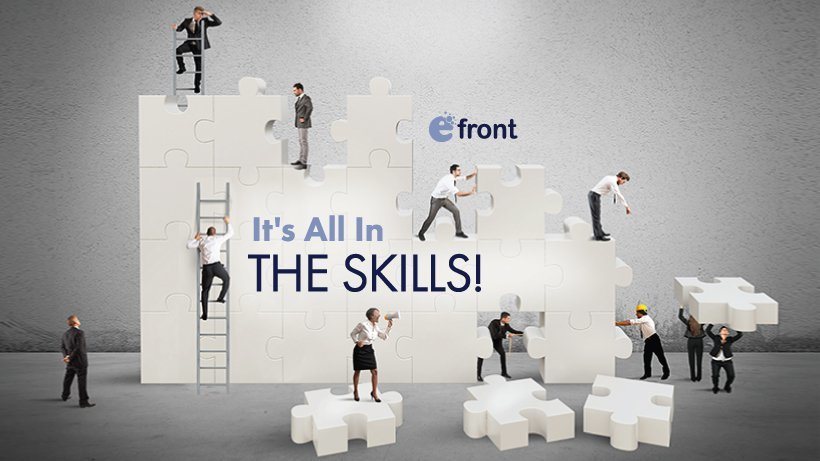Skills Management With LAS
A skill is not only knowledge, it is also the ability to use the knowledge in real-life situations. A skill therefore also includes experiences as well as attitudes and soft skills. It is still essential that this combination be managed in a coherent and structured way; companies are more than ever involved in driving and developing the skills of their employees.
The Skills Repository
Laying the foundation for effective skills management within an organization, the skills repository is essential as it defines the structure of the skills needed. The skills repository sets the framework for skills management within the organization. The skills repository typically takes the form of a hierarchical tree structure. It is composed of several "skill blocks" that each group different skills defined by one or more abilities. "Capacities" are the most elementary knowledge, and there is also "know-how" and "interpersonal skill", which can be subject to individual assessment and validation.
From the repository, we can define the skills required for each position in the company, and those that need to be obtained in order to reach a qualification. It is also by relying on this repository that we will be able to map individual skills and monitor the progress of skills acquisitions by each employee. Finally, we understand that the repository will serve as the basis for the company's entire training policy.
In terms of assessment, the basic approach is to develop a test; the achievement of a certain score can then be considered as validating a specific skill. Each skill may correspond to a test. A more global and structured approach would be to dissociate tests and skills, so that the same test can validate different skills, based on multidimensional scoring. The validation of a skill may include different capacities, which can be obtained individually. An employee's individual progress is not just a series of successful tests; it is truly organized, monitored, and plotted on the repository.
Skills Management’s 5 Pillars:
The five pillars of skills management are as follows:
- The definition of the reference framework
This can be interprofessional or specific, and includes the definition of the validation methods for each capacity, as well as the ascending validation rules. For example, the way to complete a block according to the skills that compose it. - Reliable assessments and precise multidimensional analysis of the results
The settings of the assessments must be adapted to each use case and statistical measures must be available to guarantee the margin of error for each test. - Taking into account operational and field skills
These cannot be validated by simple tests, but will require the observation of a trainer or tutor, and the statement of evidence. - The proper integration of soft skills in the repository
This includes the proper integration in the repository, and therefore in the validation system, and also the proper management of practical skills that can only be validated by observation. - Giving access to training modules and mock tests
This will allow employees to assess their level to better prepare, and therefore to fully accept, the skills management process.
All professions rely on a set of skills. It is by ensuring that each employee has the skills required to do their job in a safe and efficient manner that the company can ensure its productivity, the mastery of its risks, and the quality of life at work.
Automate Skills Management With A Learning And Assessment Solution
A Learning and Assessment Solution (LAS) allows you to manage, measure, and map skills in any type of company. The LAS makes it possible to model a skills repository and cross-reference it with the needs of professional qualifications and trades. It also enables you to define the methods of validation of each capacity or each skill via various means of assessment, which can include, in particular, the evaluation of an expert, a tutor, or a jury, with the possibility of uploading a collection of evidence directly to the platform (images, videos, documents). In a LAS, skills management, training, eLearning modules, and assessments are closely linked to offer personalized courses to learners/collaborators, with a dual objective:
- To make skills and training management more efficient, thanks to automated processes (validation of capacities, skills, sending of invitations, etc.)
- To guarantee the possibility of going further by offering, for example, personalized training courses according to the employee's progress to reinforce less well-mastered notions and to help them obtain the necessary certification by implementing an adaptive learning approach.
Adaptive learning is based on a precise analysis of the assessments results, to determine the sequences that must follow in the employee's learning path: validation of a capability, assignment to a group, submission of other suitable assessments, or enrollment in additional eLearning modules. To support each employee and allow them to take part in the certification process with serenity, you can deploy dynamic questionnaires automatically generated from a database of questions, using a personalized and adaptive selection of questions according to individual profiles. The goal is to optimize the learning curve.










